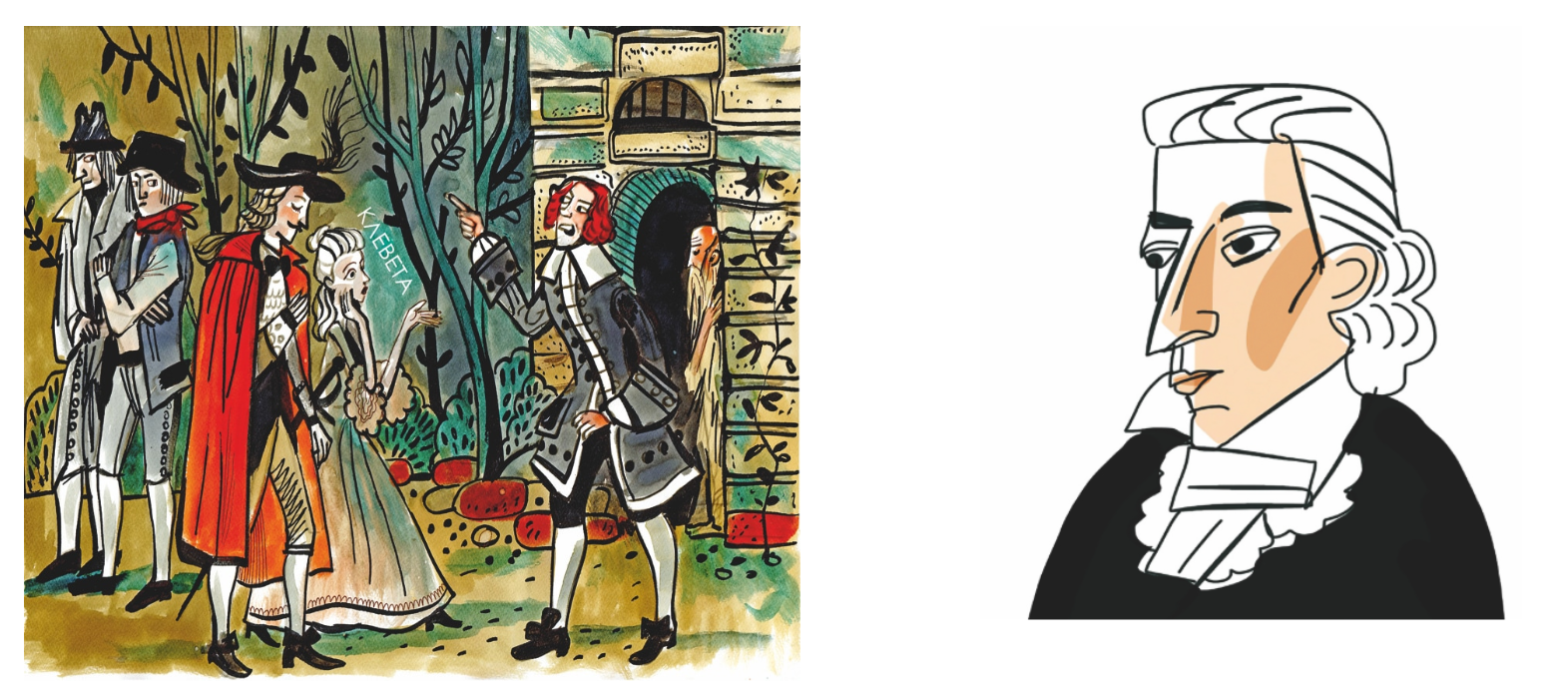"The Robbers" (1781)

"The Robbers" by Friedrich Schiller
"The Robbers" was Friedrich Schiller’s first published drama and became a theoretical foundation for Romanticism and the popular German literary genre of the "robber novel." The plot is based on real events: 18th-century Germany was marked by the rampant activity of robber gangs. The narrative revolves around two recurring motifs—"feuding brothers" and "noble outlaws." When the play debuted, young admirers of Schiller’s talent began emulating the courageous Karl Moor and dreaming of the fame their idol had achieved.
At the heart of the play lies a fierce conflict between an idealistic hero and a cruel society. Count von Moor receives a forged letter depicting his eldest son, Karl, as a dissolute rogue. The father loves the young man and cannot disown him—much to the dismay of his envious and ruthless younger son, Franz. Franz, who sees himself as an unloved, ugly failure, plots to destroy both his brother and father, seize the family fortune, and marry the beautiful Amalia, who is hopelessly in love with Karl.
In his father’s name, Franz writes a vicious and cutting reply that drives his elder brother to make a fateful decision—to lead a band of robbers. Moor’s gang terrorizes Germany’s wealthy, plundering the powerful and distributing what they take among the poor. Meanwhile, Franz plays his cruel game, manipulating the emotions of his unsuspecting family. By the drama’s end, all characters meet their doom: the cowardly Franz hangs himself in fear with a golden cord; the old count dies upon learning his son is an outlaw and murderer; and Amalia chooses death by her beloved’s sword.
Emotionally and physically shattered, Karl Moor is left utterly alone. In horror, he realizes his once-noble "knights of the night" no longer fight for ideals of morality or social justice—their hardened souls now crave blood, and their hands profit. The noble robber confronts the futility of his rebellion. His dream of changing the world has failed.
Antithesis and hyperbole become the main techniques in the portraits of the characters. Franz is devoid of humanity and metaphorically embodies the cruelty of feudalism. Karl Moor dreams of a just society—free from hypocrisy, servility, and obsequiousness—yet his rebellion lacks a clear vision of the path by which humanity might achieve a fairer world order. Upon recognizing the futility of banditry, the disillusioned ataman surrenders himself to justice.
Schiller’s play depicts events unfolding across the fragmented German territories in the mid-18th century. A key feature of this era’s political structure was the absence of a unified legal system, as over thirty distinct regional legal systems remained in effect across the German lands until 1896. In some regions, legislation even combined imperial decrees with Roman law.
According to the inheritance laws of Franconia, the father's property passed entirely to the eldest son - a fact well known to Franz, who, driven by his own greed and cruelty, plotted against his elder brother, in an attempt to completely discredit him in their father's eyes.
Under the Criminal and Judicial Code (Constitutio Criminalis Carolina) of the Holy Roman Empire of the German Nation, which remained in force until the late 18th century, Karl von Moor had effectively condemned himself to execution.
Signs and Symbols in the Illustration
The structure of 18th-century German territories, inheritance law in Franconia, and the Criminal and Judicial Code (Constitutio Criminalis Carolina) of the Holy Roman Empire of the German Nation.